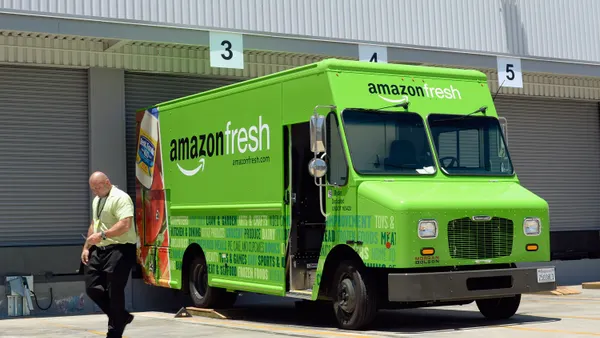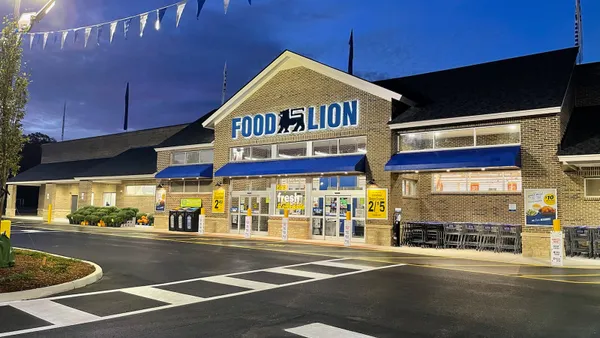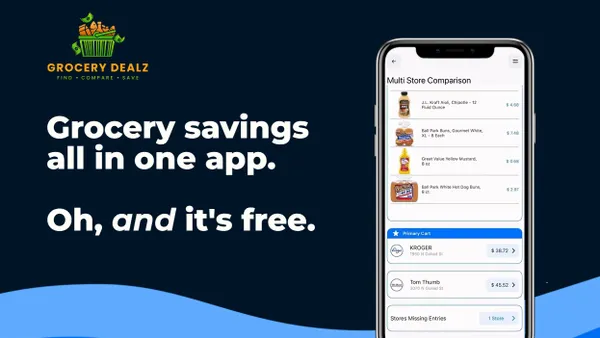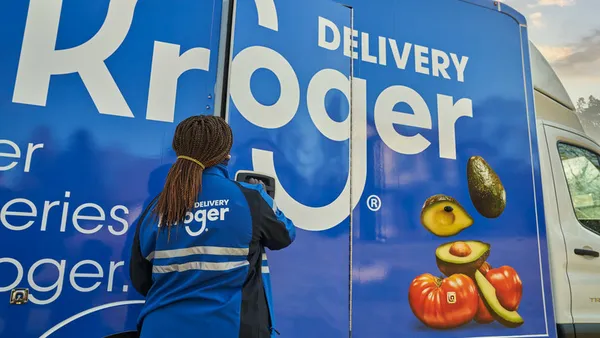Dive Brief:
- Myxx, a shoppable recipe network that allows users to meal plan and create shopping lists that connect with their local grocery store, has announced the addition of three major grocers to its platform. Myxx will now connect shoppers to products from Walmart, Albertsons and H-E-B, expanding Myxx’s reach from 1,500 stores to more than 10,000 stores across the U.S. Myxx is already used by retailers including Kroger and its Harris Teeter and King Soopers brands.
- The free platform allows shoppers to browse and select recipes and add items to a grocery list, which can be used in-store or sent to their online grocery cart for pickup or delivery from a designated store. Myxx also offers real-time pricing for items on users’ grocery lists and provides an in-store location of each product.
- “The expansion also allows our brand partners the ability to leverage the technology to extend reach and access a larger and more engaged audience, while providing them with new real-time performance metrics," Myxx CEO Monica Wood said in a statement.
Dive Insight:
Myxx launched about three years ago, and over the past year it has really started to take off. Kroger began using the Myxx platform last year for Harris Teeter, and quickly expanded it to serve multiple locations for both Harris Teeter and Kroger brand stores earlier this year. This latest announcement signifies a fivefold expansion for the startup.
In addition to Myxx, there are a handful of other companies operating in this space. Cooklist, a startup that tracks grocery purchases and turns those into recipe recommendations, launched in July. Other services include artificial intelligence company Chicory and Fexy, which operates Serious Eats and other recipe sites. Whisk is a U.K. based startup that boasts 100 million users. These companies partner with traditional grocers and e-commerce retailers, including Amazon and Instacart, and directly with brands such as Campbell’s Soup, Nestle and General Mills.
The shoppable recipe space is young, and there is a great deal of overlap in who uses the platforms and how, with brands, websites and retailers implementing the technology in various ways. In the e-commerce space, Amazon has been testing shoppable recipes for more than a year now, and startup eMeals also offers a shoppable recipe feature. On the brick-and-mortar side, Walmart has been using shoppable recipe features for at least a year prior to partnering with Myxx, and Target recently announced that it will begin offering shoppable recipes with Cooklist early next year.
Media companies, which may actually have been the first to integrate shoppable recipe technology, are also in the mix. Meredith, which owns powerhouse names including Martha Stewart, Better Homes & Gardens and AllRecipes, has been partnering with retailers to support shoppable recipe efforts since it began using the technology on its websites two years ago.
There’s little doubt that grocers will try to integrate shoppable recipes into their own sites over time, which could lead to some consolidation among the existing shoppable recipe companies. From a marketing and branding perspective, it will be far easier for grocers to have their own technology rather than a visible third-party partner. In the meantime, it is a smart acquisition tool for grocers to partner with some of these existing platforms.
As the technology becomes more seamless and as more customers learn about shoppable recipes, the process should become easier and more intuitive for them. Adoption of shoppable recipes will also go hand-in-hand with the growth in online grocery purchasing, which is poised to accelerate in the coming years.











